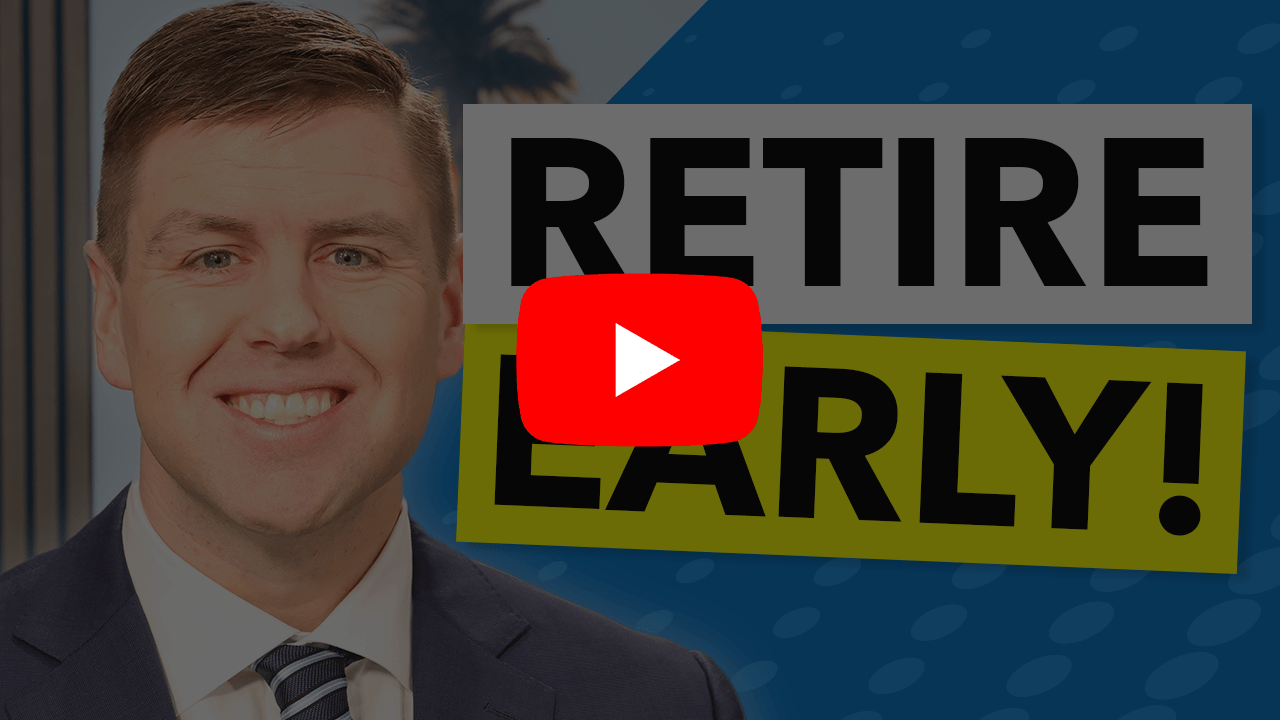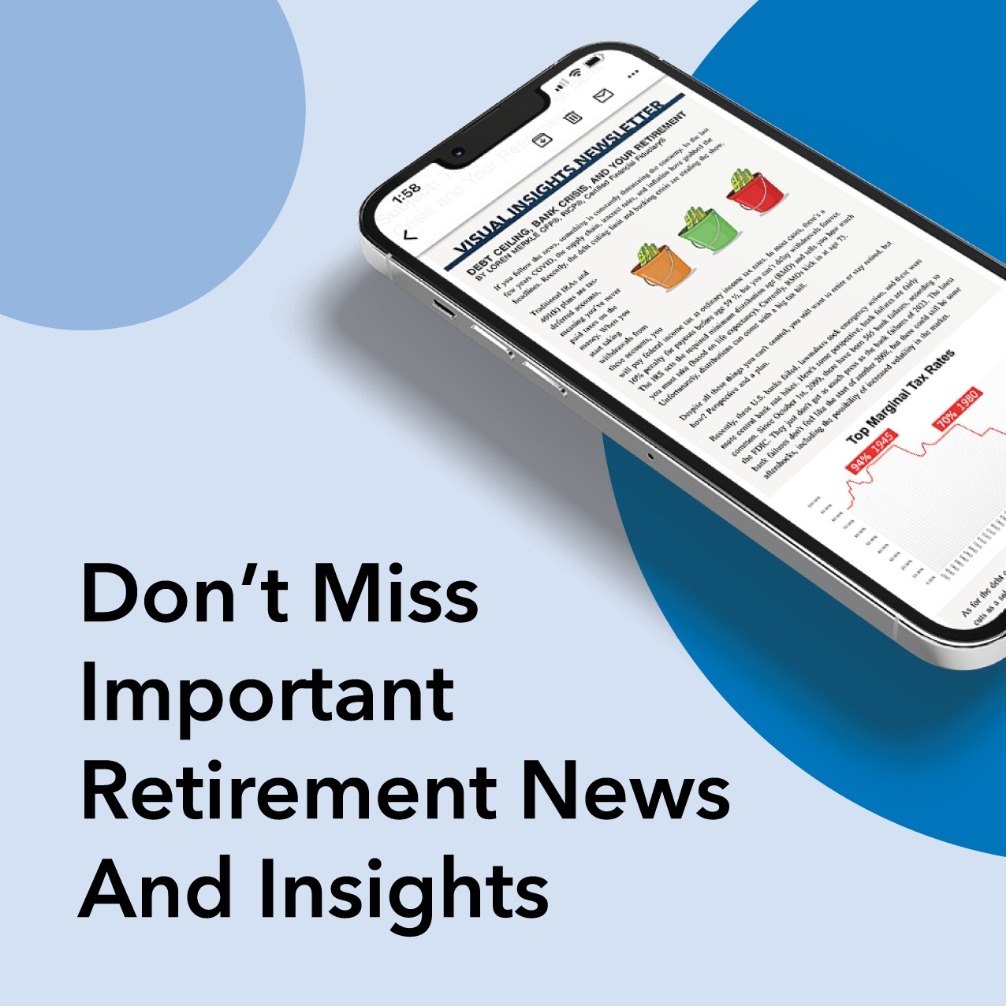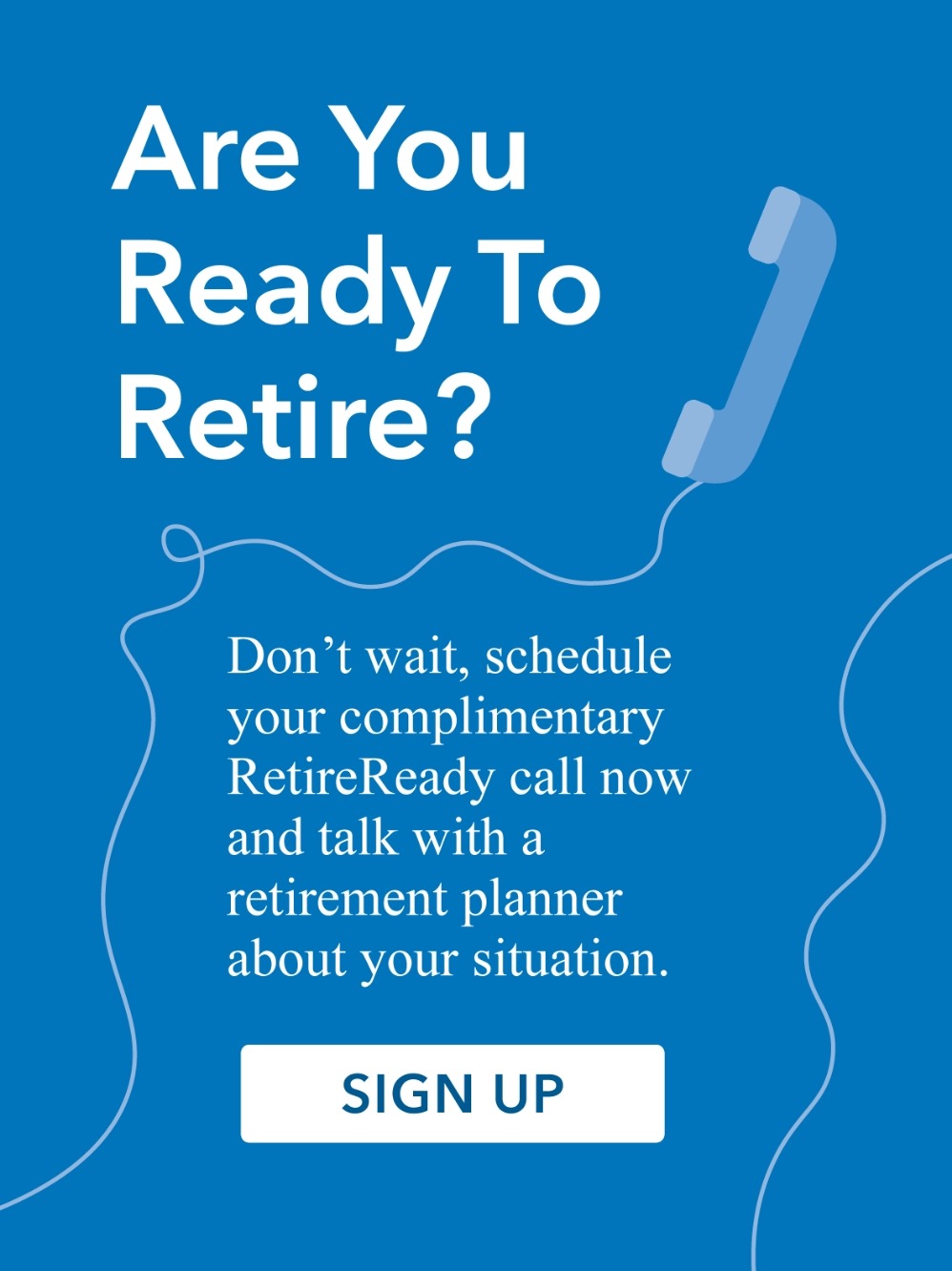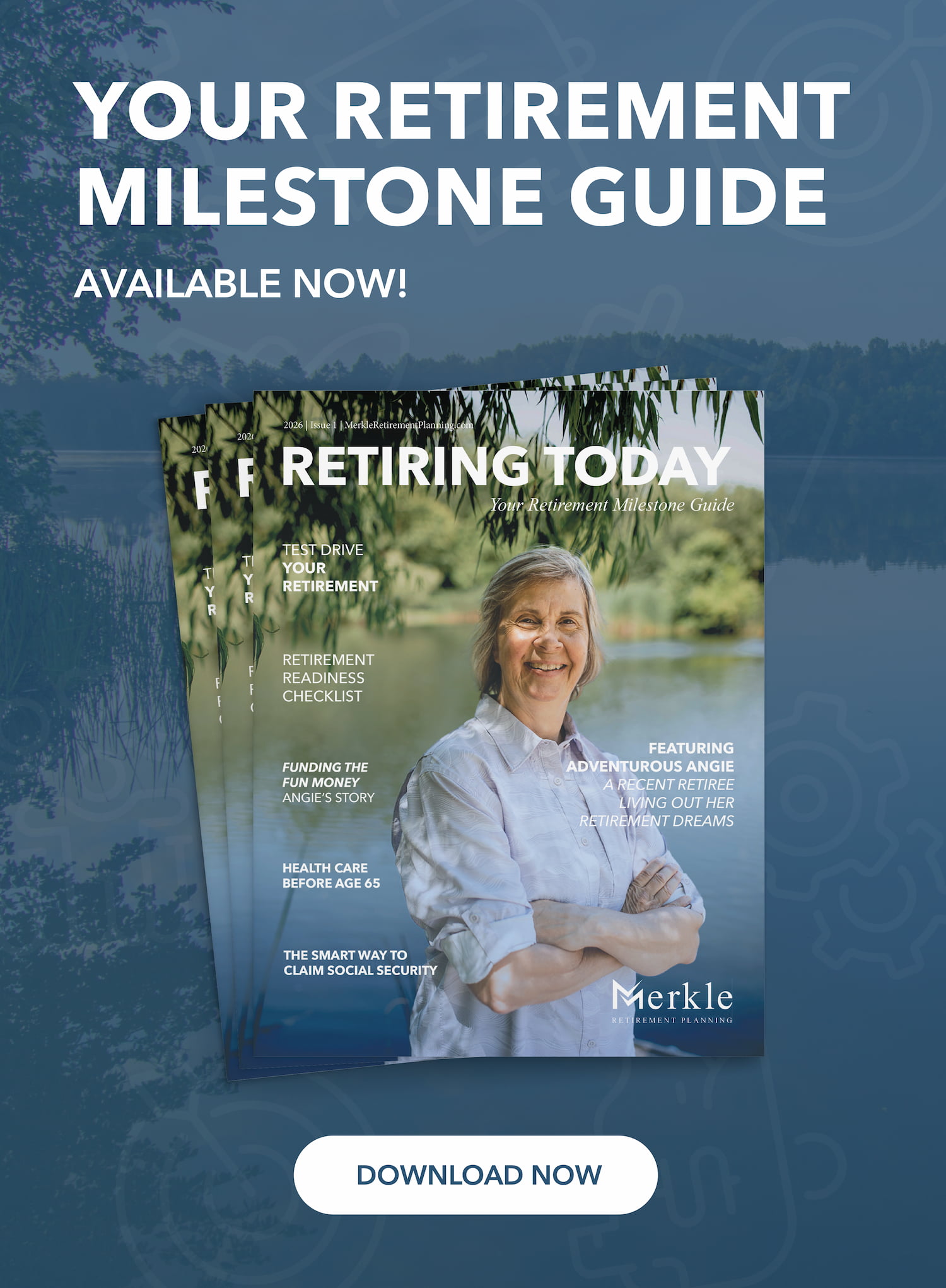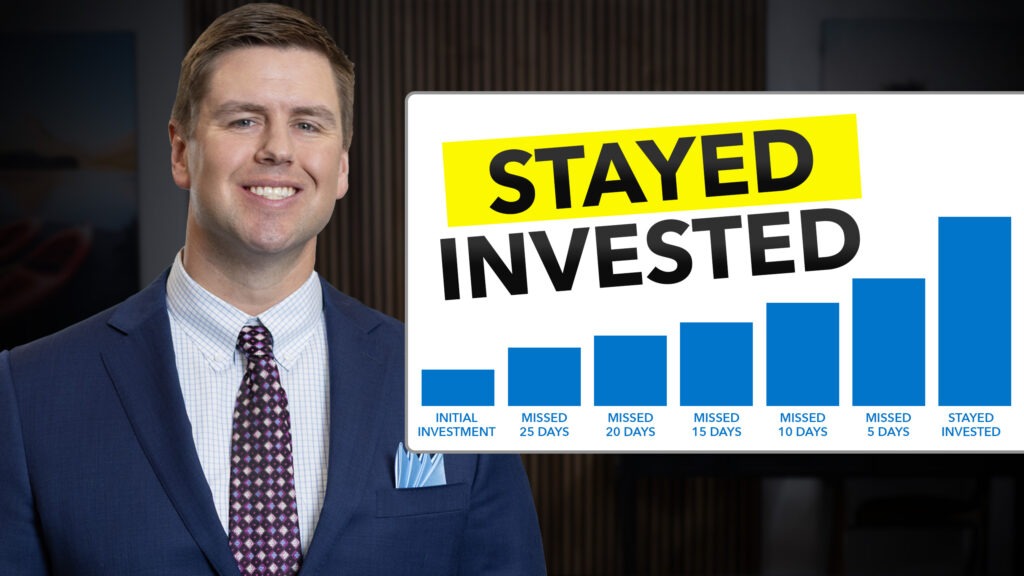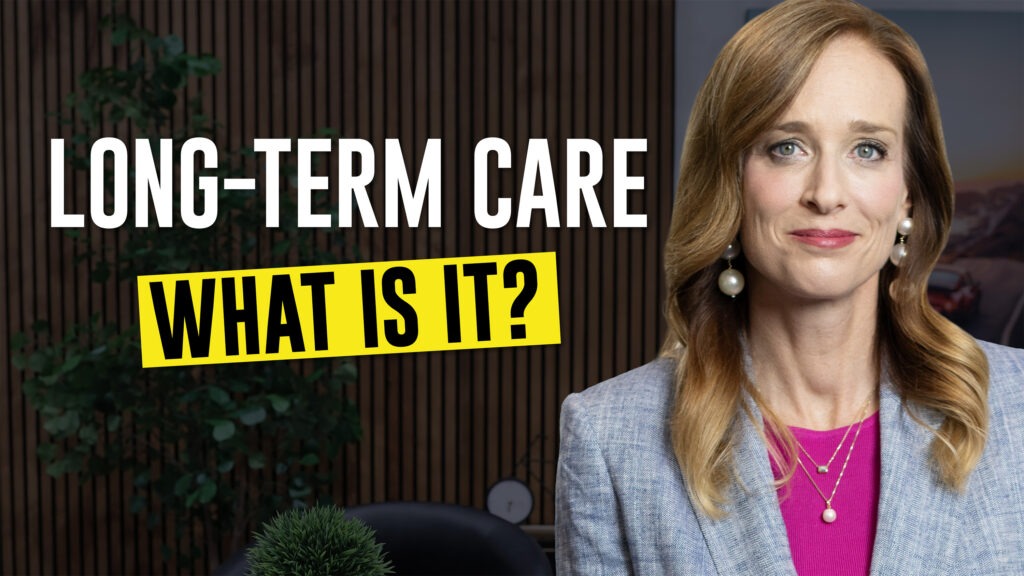In this episode, Retirement Planners Clint Huntrods and Loren Merkle delve into the compelling reasons to consider retiring early. Discover the benefits of a more active retirement, the financial strategies to make it feasible, and how to plan for health care and Social Security.
– Learn about the significance of time as a crucial factor in deciding when to retire.
– Discuss how retiring early can benefit your active lifestyle and overall health.
– Explore strategies to determine if you can afford to retire early and how to manage your finances.
– Examine health care options available before Medicare eligibility and how they influence retirement decisions.
–––––––––––––––––––––––––––––––––––––––––––––––––––––––––––––––––––––––––––––––––––––––––––––
TRANSCRIPT
Molly Nelson [00:00:01]:
Eight reasons to retire early. Next on Retiring Today. Welcome to Retiring Today. I’m Molly Nelson here with Clint Huntrods and Loren Merkle. Loren is a CERTIFIED FINANCIAL PLANNER™, a Certified Financial Fiduciary®, and a Retirement Income Certified Professional®. Clint is a Retirement Planner and has a PhD. Guys, this is a fun topic today. Eight reasons to retire early.
Molly Nelson [00:00:35]:
What we want to help you do is decide if you can retire earlier than expected. So not only will we talk about eight reasons to retire early, you’ve got a great strategy, some great strategies for people who are thinking about retiring early. So, let’s get right into it, guys, because we’ve got eight things to cover.
#1 Your Time is Limited
Loren Merkle [00:00:52]:
Time is the most valuable resource that we do have. And that become clearer the older you get. What we find is that people, as they age, their social circles start to shrink because people just start to pass away around them. And then you start to realize, hey, I don’t know how much time I really have left. And work is not fulfilling the purpose that it always once did. What is next for me? That’s when people start to think, I don’t know how many times people come in, they say, you know, once I retired, I thought that time was going to slow down. And what they actually realize is time just continues to pick up pace and they’re starting to wonder what’s next for me.
#2 To Enjoy a More Active Retirement
Clint Huntrods [00:01:35]:
Yeah, this takes me back. I was recently in Mexico. We were taking a ferry from Cancun to Cozumel. And that day, the ocean was rough. And right across from me was a couple of ladies who were probably in their seventies. And as we were just crashing back and forth, they were getting seasick. Well, next to me, I’ve got my seven-year-old and four-year-old, one of them sleeping. The other one is dancing to the music that’s being played live on this ferry.
Clint Huntrods [00:02:02]:
And as they got up to walk off, they just looked at me and smiled and said, make sure you travel when you’re young. And I feel like that’s a great example on number two. We have those phases of life where travel’s a bit easier as you’re younger. And one way to think about, you know, is it time to retire early? Is what are the things that I want to do? What kind of physical demands are going to come with those travel opportunities?
Loren Merkle [00:02:23]:
Yeah, it’s really seizing that first phase of retirement.
Loren Merkle [00:02:26]:
The first phase is one of the most fun phases for most retirees. Because this is the phase you’re dreaming about for the last five years. It’s the go-go years where you are traveling, you’re spending time with the grandkids, meaningful time, and in the back of your mind, does not work on Monday morning. And there’s a whole new experience level when you don’t have to worry about work. But then eventually you transition to the slow go years, which you don’t have as much energy and motivation to travel. And maybe the grandkids are getting a little bit more energetic, and you can’t keep up as well. And then eventually you transition to the no go years, which is where you’re really spending money on the things you have to, and in most cases, that is health care, as opposed to travel and the other types of things. So those are the three distinct phases of retirement.
Molly Nelson [00:03:12]:
And when people are talking about, should I retire early? Should I retire later? The go-go phase is what they’re focused on. How do they reclaim more active time that they can do these things that they’ve always dreamt about?
#3 To Stay Healthier
Molly Nelson [00:03:24]:
A lot of people work manual labor jobs. They’re on their feet all day, and they, quite frankly, think that they’ll have a better quality of life if they stop working.
Clint Huntrods [00:03:34]:
We recently had a family come in and they worked in the concrete construction business all their life. And as this individual just sat down, he just said, I’m tired. I don’t know that I can continue to do this and live up to the physical demands of the job that he has. We see this a lot with police, fire, EMS. I just heard that the local fire and police department are recruiting for new positions. They’re seeing a lot of turnover in their staff. People are retiring early and they explained the job demands of that, which is that you’re on for 24 hours in the fire department and you have 48 hours off. Just imagine as you’re getting older, that just probably isn’t a schedule that you want to do anymore.
Clint Huntrods [00:04:12]:
Not to mention, oh anytime they call you, you have to go and find a fire. And the physical demands that come with that. So that’s often a reason to retire early, is to think about it. And there are even rules in place for individuals that are police, fire, EMS.
#4 Because You Can Afford To
Molly Nelson [00:04:25]:
And reason number four, to retire early because you can afford it. And this is where you start reading about this concept online. Loren, about halfway into the article, there’s a retirement calculator.
Loren Merkle [00:04:36]:
Can you afford to retire? That we’re going to go through a calculator, retirement calculator experience that you might have. So, you’re sitting there, you’re saying, I don’t find the passion and work that you once had. You want to retire? Can you afford to retire? You get to a retirement calculator. The calculator is going to ask you some questions you need to answer. So, let’s answer the questions that the calculator is asking. What is your current age? You are age 57.
Loren Merkle [00:05:10]:
What age do you want to retire? You think that age 62 is a really good age to retire for you. The calculator also wants to know, what kind of income do you need at retirement so you can afford the lifestyle that you want to have during those go go years, especially, and you need $7,000 a month. The calculator also wants to know how much have you currently saved for your retirement? And the answer to that question is $750,000. And then we have to assume, you must assume a certain rate of return that the portfolio, your retirement portfolio is going to earn basically between now and the rest of your retirement. So, you are going to assume a conservative return number of 5%. So, you type all this information into the calculator, and now you’re waiting on pins and needles, praying, hoping that the calculator will give you this answer that you’re looking for, that you can retire. So, what does it come up with that you need $1.5 million to be able to retire confidently. So, you’re sitting there looking at the calculator like, why did I ever do this? Because you have $750,000.
Loren Merkle [00:06:25]:
You want to retire in five years. Which means that the portfolio that you spent 30, maybe 40 years building has to double over the next five years. How are you going to ever do this? One thing to keep in mind with the retirement calculators that you find online is it can be a really good place to start, but almost every single one of them are incomplete.
These questions that you answered are all very important, but there’s a lot more questions that go into answering the question, can you afford to retire? Questions like, what is your health status? Because your health status will affect the duration of your retirement. And the retirement income question, how much do you need? Is going to be answered by how much income can your investable assets deliver? Do you have a pension and how do you optimize Social Security? A lot of those calculators don’t address Social Security. The income that you could receive, and even the ones that do, they’re going to ask you to provide an estimate on what you’re going to receive. You may have up to 81 different options to elect your Social Security. None of them are asking, what’s your optimized strategy? And more importantly, none of them are telling you what your optimized Social Security strategy is.
Loren Merkle [00:07:36]:
Spending needs change as you go to and through retirement, of course, taxes. There are so many other factors that go into answering the question, can you afford to retire? So, over the last 13 years, as we’ve been helping people successfully retire, we have built a customized retirement roadmap that we call the retire secure roadmap. And there’s six pillars that are involved in this roadmap that you need to answer and will produce the answer to your question, can you afford to retire? And it is custom to you, such as, what do you want to do in retirement? How much is that going to cost you? Where is that income going to come from? How do you optimize your Social Security income? How do you minimize retirement taxes? Legacy? How do you invest your portfolio? So, no matter what happens in this crazy market, you can still produce the income from your investments that you need. And then, of course, finally, the health care solution as well. So, all of these need to go into your plan so you can enjoy the retirement lifestyle that you have always been looking for. The calculators online, great place to start. It can help you come up with additional questions that are helpful to answer that question. But it’s just a starting place.
Loren Merkle [00:08:55]:
It’s not the finish line.
Clint Huntrods [00:08:56]:
Yeah, it’s almost like we planned this. Someone actually just this week came in for a visit and we hadn’t really built out that RetireSecure Roadmap for them yet, and they’d been trying to do this online, so they actually had printed out an output from an online calculator. And we just said, how did that go? And they basically said it was a train wreck. Trying to figure out the specific needs that they had. They were trying to change income over time, change spending over time, and they found this to be entirely insufficient.
So, we were able to help show them with the RetireSecure Roadmap, exactly what their true picture looked like. And they were just blown away by how far off they were when they were trying to do it online by themselves.
Loren Merkle [00:09:35]:
How intuitive for them, though, to realize that their spending needs are going to change as they go through those different phases. The calculator that we just ran through was just assuming a $7,000 a month need. But what we really find is people might need to start retirement at $7,000. But wait a minute, six months in, they need to buy a new car. They want to take this trip with the family or take their family on a trip. There’s a lot of things that come up that do require some adjustments that the online calculators just can’t account for.
Clint Huntrods [00:10:01]:
Well, when we’ve got that dollar amount, $1.5 million, is that pretax? Is that non-qualified? Is that Roth dollars? Those are very different numbers. When we start to just think $1.5 million, well, what’s the true tax classification of the assets that they need to have saved?
Loren Merkle [00:10:17]:
Yeah, and then let’s just say the $1.5 million is accurate. Let’s say that is what you need to retire successfully. There are no action steps. What’s next? How do you get from $750,000 to $1.5 million over the next five years or ten years? Or what does that look like? And the action steps, regardless of the conclusion of any calculator, is probably the most important part.
Molly Nelson [00:10:39]:
So, it’s a little more complicated than an online calculator. We’re going to talk about four more reasons to retire earl, next.
Molly Nelson [00:12:38]:
Welcome back to Retiring Today. It’s time for Your Journey Your questions. This is when we answer questions from you. These are questions that we’ve received during our online Journey to Retirement workshop. Do contributions to a Roth 401(k) and a Roth IRA have the same limits?
Loren Merkle [00:12:55]:
They do not, in fact. And that can be used to your advantage, because if you qualify, you can contribute a whole lot more to your Roth buckets than you could if they both have the same limit. So, as an example, your employer plan, if you’re age 50 or older, you can contribute $23,000 plus a catch-up contribution of $7,500. That’s $30,500 just to the employer plan. In addition to that, if your earned income is within the limits, which means if you file single and you make less than $161,000, file married and make more less than $240,000, then you can contribute $8,000 if you’re age 50 and older to a Roth IRA. So that’s $38,500 to the Roth IRA types of buckets between the employer plan and the Roth IRA if you qualify and if you have the desire and ability to contribute that much towards retirement.
Clint Huntrods [00:13:49]:
And obviously, the person who’s asking this question is thinking, how do I get more money into those Roth buckets? And maybe you’ve saved pretax, and so you’re really thinking about maybe the conversion makes the most sense for you. And there is no limit on how much you can convert from pretax to Roth. You just want to make sure that it fits your overall income plan, fits within your health care plan. And so, as the theme of the show today is retire early, actually, by retiring early, that may open the window that you have where now you can create your new taxable income and really have a good window all the way before RMD age kicks in. And now you’re forced to take a certain percentage out of those pretax accounts.
Molly Nelson [00:14:26]:
Yeah, I’m taking a little rewind here. Cause just in case this is the first time you’ve heard about Roth, or maybe you’ve heard the term Roth, but you’re not exactly sure. It’s powerful in retirement. Let’s remind people why.
Loren Merkle [00:14:35]:
Well, the main distinction is if you have a traditional 401(k) or IRA, when you take that money out, that’s not all yours. You still have to pay a tax bill to the IRS. And depending upon the state you live in, the state and the state of Iowa, that rule recently changed, so you only owe the feds. With the Roth, you take that money out, that is 100% your money that you can spend. So, a big part of your tax planning strategy is, how do you decrease your retirement tax bill? Because that can have a direct impact on your spendable income, which will have a direct impact on how you afford your lifestyle in retirement.
Molly Nelson [00:15:11]:
And if someone is watching, and maybe they are 57, like the retirement calculator age that Loren put in, is it too late to start working on that Roth bucket?
Clint Huntrods [00:15:20]:
It’s not too late. And we’ve just mentioned three different ways that you can start to build that Roth bucket up over time. What you do want to think is, how does that fit within your overall plan? Does it make sense or does it not? And those are all just parts of the RetireSecure Roadmap will help give you an understanding of what that looks like and what makes sense for you.
Loren Merkle [00:15:39]:
Yeah, and that’s a really good question. Does it make sense or does it not? We talk positively about Roth, but it is not right for everybody. And it’s not right for everybody right now. But just because it may not be right for you right now doesn’t mean it may not be right for you down the road. Let’s say you have no Roth money, and you’re like a lot of pre-retirees out there, and all or most of your money is in the pretax accounts. One of the most favorable timeframes to start the conversion strategy is the first full calendar year after you retire. Maybe you just make too much money for it to make sense to start the conversions now or even contribute now, but it’s not too late.
Loren Merkle [00:16:18]:
And so, if you’re thinking maybe, it is too late, reevaluate. Make that a part of your overall comprehensive plan, that will answer the question, what is your specific Roth strategy, if there is one?
Loren Merkle [00:16:28]:
You guys keep saying overall comprehensive plan. It’s like you help people build these every day. These are comprehensive plans. And for some people, this is a new concept. A great way to dive into exactly what a comprehensive plan is, is the online Journey to Retirement workshop.
Clint Huntrods [00:16:42]:
Yeah. And in the online Journey to Retirement workshop, you can look at John and Sue as they go through their retirement and the transition to that. What you can see is the value of the Roth, how they use that and incorporate some of the strategies that we’ve just talked about.
Molly Nelson [00:16:55]:
And it won’t just be tax planning, Loren. It’ll be a lot of other things included in that Journey to Retirement workshop?
Loren Merkle [00:17:00]:
It’s going to be all six pillars that we talked about. So, what do you want to do from a lifestyle standpoint? How are you going to drive the income? Decrease the retirement tax bill? The health care piece is a huge piece, which is why we have Anna Marie Morrow on our team, who is the Director of Medicare and helps people with health care and Medicare.
All are discussed within that workshop with specific strategies going back to the tax part of it. We show you through our hypothetical couple, John and Sue, how they save over $100,000 over the course of their 25-year projected retirement just on their retirement tax bill alone.
Loren Merkle [00:17:35]:
$100,000. What would you do with an extra $100,000 in retirement? You could take several vacations, do a lot of fun stuff. Find out how. Go to our online Journey to Retirement workshop. The website is RetireWithMerkle.com. When you get there, you’ll choose a time and a date that works for you. Then get comfortable because you’re going to spend about an hour and 45 minutes learning about all of the decisions that you’re going to make in retirement and how to make the best decisions for you. We’ve still got four more reasons to retire early.
#5 You Have a Plan for Health Care
Clint Huntrods [00:20:02]:
Even if you’re retiring before 65, some companies will allow you to continue your employer-sponsored health care program until age 65. Some examples we’ve seen recently, if you work for a K-12 school, a lot of colleges locally, we’ve found families have that opportunity. A couple other big-name companies, Mid-American Energy, Wells Fargo, depending on when you started, what your early retirement package may look like. But that can be a way that you’ve got health care provided for up until that Medicare eligibility age at 65. So that can be part of the reason to consider retiring early. Or maybe your spouse does, right? So, if your spouse is still working or they have coverage through their work, that may be another way that you have health care provided to get to that Medicare eligibility window.
Loren Merkle [00:20:45]:
And this is such an important phase or important component of the plan for so many people. I saw a report recently from US News and World Report. They said the median age that people retire is age 62. So, there’s a whole bunch of people out there who are retiring prior to Medicare age 65 who need a health care plan, not only pre age 65, but then also once they get to Medicare age. There’s a host of options amongst Medicare that now they have to wade through to make sure that they have the appropriate coverage and can afford it for the rest of their retirement.
Molly Nelson [00:21:15]:
And some also considering the open market, Obamacare or the Affordable Care act. And then COBRA when you can stay on your employer’s plan, sometimes for up to 18 months.
Clint Huntrods [00:21:25]:
And we even see some families target instead of age 65, they target 63 1/2. And that’s when they know they can get that coverage on an employer plan, called COBRA, that they’re used to and familiar with. And if they’ve checked that price, they know that it makes sense from an income standpoint. That could be an opportunity for them to go ahead and retire at 63 and a half. Take COBRA for 18 months. Maybe the open market’s better. We can help them evaluate that. And then once they hit that 65 threshold, they can get into Medicare.
#6 You Understand Penalties
Loren Merkle [00:21:58]:
A lot of retirees’ income is going to be derived from their retirement savings. But when you invest in an IRA or 401(k) plan, you’re making a deal with the IRS on how that money is going to be handled. One of those deals is from the IRA. You can’t, without only a few exceptions, take money out of the IRA prior to age 59 and a half without an early withdrawal penalty. With the 401(k) plan, most of the time it’s 59 and a half. But there are some exceptions, which means that if you separate service with that employer at age 55 or beyond and you take the money directly from that employer plan, then there would not be a penalty. But if you roll that money from the employer plan to the IRA, you’re under 59 1/2 now, you do have the penalty, so there are definitely penalties and there’s many more that we need to be aware of that you have to incorporate within your plan to make sure you retire when you want to get the income that you need and you don’t have to pay any excess penalties along the way.
Clint Huntrods [00:22:54]:
And make sure that it’s customizable that you’re looking at your specific situation. Some 401(k) plans don’t allow but one time per year to send out that distribution. You can’t really set up a monthly paycheck like you might be used to or like you can after 59 1/2 with an IRA. Public service employees, we mentioned earlier, are likely to retire a little bit earlier than maybe the traditional age, also have a window into getting into the retirement plans a little bit sooner without penalty. So, look at your specific situation importance of having a customized plan for you.
Molly Nelson [00:23:24]:
And these rules are also a great reminder of why a retirement calculator that you find online isn’t going to put all this nuance into your outputs.
#7 You Don’t Forget Social Security
Loren Merkle [00:23:37]:
We can’t forget Social Security because it represents 25% to 35% of most retirees’ income. And if you don’t have a pension, in fact, if you have Social Security, you do have a pension because it is for the rest of your life. It shows up each month. So now it’s about how do you get the most out of it. In the online Journey to Retirement workshop, we show how John and Sue, by maximizing their Social Security, can get an extra $80,000 plus out of Social Security over the course of their lifetime. It’s very impactful to make sure you look at all those options and determine what’s the best way to use that for you.
Molly Nelson [00:24:10]:
So, John and Sue are up $100,000 on taxes and $80,000 on Social Security?
Clint Huntrods [00:24:14]:
Keep the tally, keep the running tally.
Loren Merkle [00:24:15]:
John and Sue are planning some extra vacations in retirement, they do plan.
Molly Nelson [00:24:19]:
On having fun, we talk about those goals in the journey, and they’re figuring out ways to pay for them quickly.
#8 You Have a Plan
Molly Nelson [00:24:26]:
Clint, the plans that you help people build, they write it out for them, and they show them how this works out, whether they retire at 62 or 70. It takes the guess work out of retirement.
Clint Huntrods [00:24:43]:
Yeah. And that’s one thing that we find. The thing that I love the most about working with families for the first time is that they can start to see that roadmap, what that looks like for them, and then they can start to understand, okay, I can retire. And that’s was always one of those things where they start to get a really emotional feeling, to not only believe that they want to retire and see that they actually can retire, and that’s just an awesome opportunity for them to now see, okay, I need to start thinking about what we’re going to do from a lifestyle perspective, because we’re going to have a few more years than maybe we anticipated when we were doing this at home on our online calculator, and we didn’t have that full plan built out.
Molly Nelson [00:25:20]:
RetireSecure Roadmap is exactly that. It shows you with security how you can feel secure about what’s written down on it. These RetireSecure Roadmaps are pretty amazing. What you can see is how this all works out. The online Journey to Retirement workshop is the first step. Loren. It’s the first step to seeing what a roadmap, a journey, all these things look like.
Loren Merkle [00:25:40]:
And one of the hardest things about retirement planning is that first step. Where do you get started to build this thing called a retirement plan that’s going to be so important to you as you make this transition into the rest of your life. And the Journey to Retirement workshop makes it so easy, because not only do you get just a ton of information that you can use to impact the rest of your life, but you can do this from the comfort of your own home. You can watch this on the couch with your spouse or by yourself or with your kids. But there’s just, this is a great place to start, and then it gives you specific action steps, which you can do then to really make an impact on the overall plan.
Molly Nelson [00:26:19]:
Yeah. Loren mentioned from the comfort of your couch, because it’s an online Journey to Retirement workshop. So, you sign up for a time and a date that works for you. Clint, who is a good fit to sign up for the online Journey to Retirement workshop?
Clint Huntrods [00:26:31]:
If you’re five to ten years out from retirement, and this is what we have all the time, is we have families come to us five to ten years out from retirement, they can just start to feel, hey, I think I want to know more about what this actually looks like for me. So, if you’re in that ballpark, that’s a great time to get started. Start to think about what your plan could look like and what it should include, which is what you can learn in the Journey to Retirement workshop.
Molly Nelson [00:26:51]:
You can go to RetireWithMerkle.com and sign up for the online sign up for the online Journey to Retirement workshop.
–––
We are an independent financial services firm helping individuals create retirement strategies using a variety of investment and insurance products to custom suit their needs and objectives. The content and examples shared are for informational purposes only and should not be construed as investment advice or serve as the sole basis for making financial decisions. Individuals are encouraged to consult with a qualified professional before making any decisions about their personal financial situation. Our firm is not permitted to offer legal advice. Investment Advisory Services offered through Elite Retirement Planning, LLC. Insurance Services offered through MRP Insurance, LLC.
